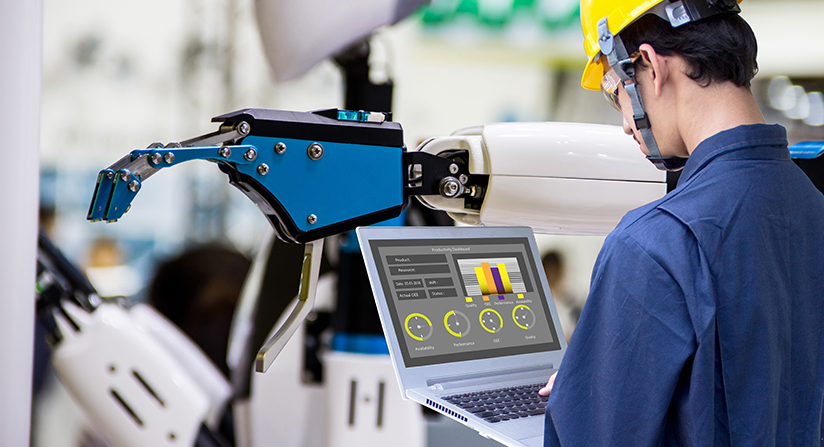In recent years, the landscape of industries has been dramatically reshaped by the relentless advancement of automated production. This technological phenomenon, fueled by cutting-edge robotics, AI, and sophisticated machinery, is revolutionising traditional manufacturing processes across the globe. From automotive giants to electronics manufacturers and even food production, automation production, precision, and output.
This transformative shift streamlines operations and prompts a profound reimagining of workforce dynamics and skill requirements. Understanding the multifaceted impacts of automated production is crucial as businesses navigate this paradigm shift and chart a course toward a new era of industrial evolution.
Role of Automated Production in Transforming Industries
Automated production is playing a pivotal role in reshaping industries across the globe. It is driving transformative changes in various sectors by integrating advanced robotics, artificial intelligence, and sophisticated machinery.
- One of the primary benefits of automated production is its ability to enhance efficiency and precision. Automated systems can perform tasks with consistent accuracy, reducing errors and minimising production bottlenecks.
- Automation allows industries to scale their production processes more efficiently. As demand fluctuates, automated systems can adjust production levels quickly and seamlessly, ensuring supply meets demand without excessive downtime or labour costs.
- While the initial investment in automated systems can be significant, the long-term cost savings are substantial. Automated production reduces the need for a large workforce, minimises waste, and optimises the use of resources, ultimately leading to improved profitability.
- Automated production facilitates innovation by freeing up human workers from repetitive tasks, allowing them to focus on creative and strategic aspects of production. Moreover, automation enables the cost-effective customisation of products, catering to individual customer preferences.
- Automated systems generate vast amounts of data that can be analysed to gain insights into production processes, performance, and potential areas for improvement. This data-driven approach enables industries to make informed decisions that further optimise operations.
- While automation might replace some routine jobs, it also leads to the creation of new roles focused on designing, programming, and maintaining automated systems. The workforce transforms, requiring upskilling and reskilling to meet the demands of a more technology-driven industry.
- Industries that embrace automated production often gain a competitive edge. They can produce goods more efficiently, respond quickly to market changes, and maintain higher product consistency, positioning themselves as leaders.
How to Incorporate Automated Production in Industries?
Incorporating automated production into industries involves a strategic approach to implementing technology-driven solutions that enhance efficiency, productivity, and overall operations. Here’s a step-by-step guide on how to do it:
- Assessment and Planning: Identify tasks for automation, set goals, and evaluate feasibility.
- Technology Selection: Research and choose suitable automation tech, collaborating with experts.
- Integration and Implementation: Create a phased roadmap, begin with pilot projects, and involve cross-functional teams.
- Training and Upskilling: Train staff to operate and maintain automated systems to address concerns.
- Data and Analytics: Collect real-time data analysis for insights into efficiency and improvements.
- Continuous Improvement: Monitor performance and refine processes based on data and feedback.
- Maintenance and Support: Establish preventive maintenance and ensure technical support.
- Scaling Up: Gradually expand automation, design for flexibility and future tech integration.
These steps enhance efficiency, productivity, and industry competitiveness through effective technology-driven solutions.
Embrace the transformative power of automated production to revolutionise your industry. By streamlining processes, boosting efficiency, and ensuring consistent quality, automation opens doors to unprecedented growth—partner with experienced service providers who understand your industry’s unique needs to embark on this journey.
Collaborate with experts who can tailor automation solutions to your specific challenges and objectives. Now is the time to leap into a future of innovation and success. Connect with a trusted service provider today to pave the way for a brighter, more efficient, and prosperous tomorrow.
